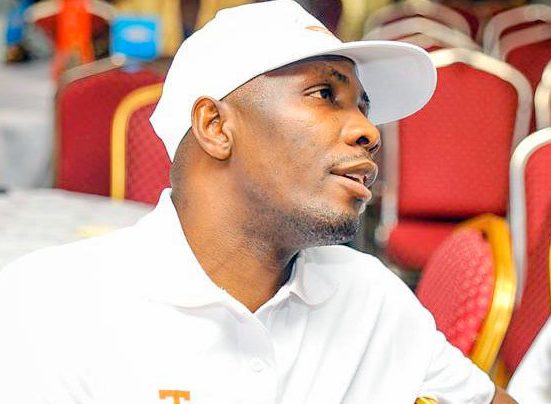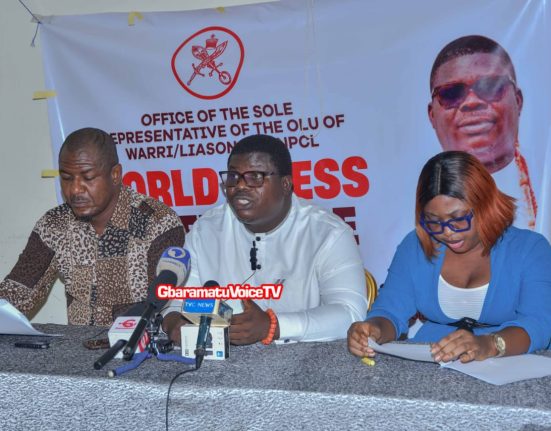PIA: Avoiding pitfalls in host community development trusts
By Tunji Idowu
THE Petroleum Industry Act, PIA, which was signed into law in August 2021 is a game-changer for the oil industry.
All-encompassing, it aims at establishing good governance, best practices and ease of doing business in the oil and gas industry by attempting to clarify roles and responsibilities of officials and institutions, regulate midstream and downstream activities, improve environmental compliance, transform NNPC into a commercially viable enterprise, and restructure the management of host communities’ relations.
Chapter 3 of the Act introduces the Host Community Development Trust, HCDT, a component that has generated comments from a wider range of stakeholders than the other components. Against the backdrop of previous restiveness within the region, and the work that many of us have undertaken there, this chapter is particularly of interest and focus for me.
ALSO READ: GbaramatuVoice to host Niger Delta Economic Discourse Series on PIA
In restructuring the management of host communities’ relations, the PIA mandates the creation of a HCDT, a trust for the benefit of the host communities to which oil and gas operators (described as “settlors”) are obliged to make annual contributions based on three per cent of their yearly operating expenditure. The HCDT is expected to improve the quality of life of the host communities’ population, and improve accountability in the management of development funds. From the PIA, it is obvious that one of the gains expected from the HCDT is sustainable community development as indicated by the degree of interest shown in Participatory Needs Assessment and Community Development Plans to deliver such.
However, preliminary reviews of the Act have revealed some obvious gaps in its provisions. High on the list of the key gaps is the absence of a provision for the direct management of grievances/conflicts on a day-to-day basis among the entities critical to the HCDT i.e., the settlors and the host communities. Instead, the PIA has assigned this role to the Nigerian Upstream Petroleum Regulatory Commission, NUPRC, which is overseeing the implementation of the HCDT. Curiously, there is no role for state governments who are the custodians of security in their respective states where oil and gas operations take place, and to whom settlors routinely turned for help in the past. Another key gap relates to collaborations and partnerships. Although the Act empowers the Trust to receive grants, donations, gifts and honoraria, it leaves no opportunities for development partnerships to evolve.
The threat here is the potential for huge wastage of resources through duplication of community organisations and projects. Then, there is the risk of settlors overlooking their local content responsibilities due to the non-harmonisation of Nigerian Content Development & Monitoring Board, NCDMB, guidelines within the Act. Lastly, the Act awards executive functions to an ad hoc committee which may not be executable for programme and project delivery. Since the Act has allowed only the settlor to establish the leading organs of the HCDT and provide all its guidelines and control framework, it is, therefore, incumbent on the oil and gas operators to find means of addressing these gaps. This is the immediate way to minimise or eliminate potential grave issues that may cause serious operational challenges in managing the HCDT, and to ensure a smooth transition and successful implementation in the long run. Except NUPRC provides more operational guidelines and/or there are amendments to the Act.
Before the PIA, some oil and gas operators, especially the international oil companies, IOCs, operated Global Memorandums of Understanding, GMoUs, with their host communities. These companies may find transitioning to the PIA a bit easier because, indeed, there are aspects of Chapter 3 which were mirrored off those prior terms of host community engagement. For others, the task may appear daunting, especially when faced with the deadline of compliance instituted by the Commission. Nevertheless, the key to overcoming and achieving success for all companies, irrespective of experience, would be the consideration and application of a strategy with keen focus on the design, development, and institutionalisation of a suit of organisational governance policies, processes and procedure guidelines.
The people in the host communities,who constitute the core of the PIA Chapter 3 activities and around whom all interventions in the HCDT would revolve, should be at the core of executing this strategy effectively. It also important to note the lessons learnt – successes and mistakes – from the GMOU model to mitigate potential risks in implementing the HCDT. The gaps in the HCDT should also be considered and work should go towards addressing them through the HCDT Constitution. While policies, processes and procedures should be prepared based on global performance standards, as typified by the International Financial Corporation, IFC, performance standards on environmental and social sustainability, the Equator Principles, and the United Nations’ Sustainable Development Goals, SDGs.
An intentional and most effective strategy, however, would be the development of viable partnerships way ahead of the planning and preparation of the transition/implementation strategies. Therefore, it is important that settlors do not see themselves as competitors but rather as collaborators in addressing pertinent issues. I also recommend collaborations with broader stakeholders such as civil society organisations, CSOs, and development organisations who have had years of on-ground experience working within the communities in the Niger Delta. An organisation like the Foundation for Partnership Initiatives in the Niger Delta, PIND, for example, has experience in supporting the implementation of initiatives under the GMOU and comes with a pedigree in designing, facilitating, and monitoring needs-driven, locally-owned and locally-implemented sustainable community development initiatives.
With the deadline fast approaching, I anticipate a scramble. And for those of us on the development side of the industry who have invested a lot and worked hard for a long time in keeping the Niger-Delta stable, one can understand our apprehension that if things are not done well, we can have a lot of issues unraveling.
Nobody really has a silver bullet for solving the complex and interconnected issues in the Niger Delta region and not one organisation or individual can do it alone. Only by leveraging everyone’s strength and experience can we all achieve the success we desire.
Idowu is Executive Director of Foundation for Partnership Initiatives in Niger Delta (PIND).
Support Quality Journalism in the Niger Delta Region
Join us in our mission to bring development journalism, cultural preservation, and environmental awareness to the forefront. Your contribution makes a difference in the lives of the people of the Niger Delta. Donate today and be a part of the change!









